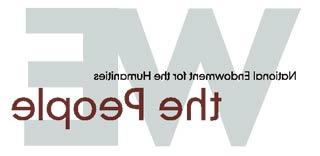Washington Takes Command of the Continental Army
介绍
In the days after the Battle of Bunker Hill, there is a stalemate between British and colonial forces while both sides regroup. The British regulars now stationed at Bunker Hill have a view of the colonial fortifications across the river, 在20,000 men assemble under Artemas Ward's command. Morale among some British soldiers is low after the battle, and shortages are beginning to make life difficult. Colonial supporters try to take advantage of the situation, distributing flyers in the British camps that berate the soldiers for shedding “你同胞的鲜血” 并鼓励忠诚的转变.
在费城, many delegates are concerned by the role New England has played in the conflict so far, believing the New Englanders to be rabble-rousers and trouble-makers. If there is to be an Army of the United Colonies, it must be agreed upon and supported by all the colonies, 不仅仅是在北方. Artemas Ward has commanded the assembled troops in Cambridge for several months, but finally Congress picks a Virginian to increase the sense of colonial unity as “我是所有部队的首领." 那个弗吉尼亚人就是乔治·华盛顿.
当华盛顿抵达剑桥, he finds a motley and disorganized collection of men and armaments. Many of the New England troops are suspicious of him as an outsider, but he soon lets them know that "将军最诚挚地要求" 秩序与服从.
Washington sets up his headquarters at a fine mansion on Brattle Street, 被保守党家族抛弃, 的Vassalls, who have fled to safer areas like most of the Loyalists in Cambridge. 一旦在那里建立, 他开始接待许多来访者, from local residents to Native American representatives from tribes in Canada and New York, 给国会代表团. 一个这样的代表团, 包括本杰明·富兰克林, meets with Washington to address the issues facing the new Army, 包括问题 如何养活20372人 以及如何保存它们, since many have signed on only as short-term enlistments and are now eager to go home.
Dismayed by the British situation in Boston, General Howe is also desperate for men. Many Loyalists who have abandoned their homes in Cambridge and the surrounding towns are now crowding into Boston seeking the protection of the British Army. 希望 "Preservation of Order and Good Government," Howe appeals to the residents of Boston as winter approaches.
Though Washington calls for his wife and family to join him in Cambridge and appears to settle down for a winter of waiting, 他另有打算. Caring more for talent than birth or education, 华盛顿亲自挑选了他的官员, and selects Henry Knox to venture to upstate New York and the captured Fort Ticonderoga. Knox is to bring the artillery pieces from the fort to reinforce the colonial siege lines, despite “雪太深,大炮打不动” 还有其他挫折.
Jeduthan Baldwin is one of those chosen to prepare the colonial fortifications for Knox's cannon, and he diligently records the effort put in to digging ditches and building artillery emplacements, 经常在敌人的炮火下. 华盛顿的愿望 “射击和投掷炮弹。 ... 到波士顿” from spots surrounding the city, and Baldwin and Knox are the men he trusts to put them there.
The summit of Washington's plan is to fortify Dorchester Heights, where there is a clear shot straight into the city and over the harbor area. Knox's successful progress culminates in placing the cannon in fortifications thrown up overnight on the fourth of March 1776. This provokes both British Army and Loyalists into “为他们的出发做准备” after continuous military presence in the city for seven and a half years. Celebrations ring out through Massachusetts as the triumphant Bostonians exclaim “伟大的豪是个可怜虫."
Washington's plans have produced his first victory since taking command of the Continental Army, 现在他和他的军队向纽约进发. While in Cambridge he, like many colonists, read Thomas Paine's 常识. Independence is now the question on everybody's lips.
罗的革命
“Genl华盛顿 & his Retinue were in Town yesterday, I did not hear of it otherwise should have paid my Respects & 侍候他."


![大报,展望山. 邦克斯山,[波士顿:约翰·豪,1775年]?]](/database/images/prospectbunkers_1_th2.jpg)







![较宽的一面, Two favorite Songs made on the Evacuation of the Town of Boston by the British Troops [Boston, 1776]](/database/images/twofavsongs_th.jpg)

